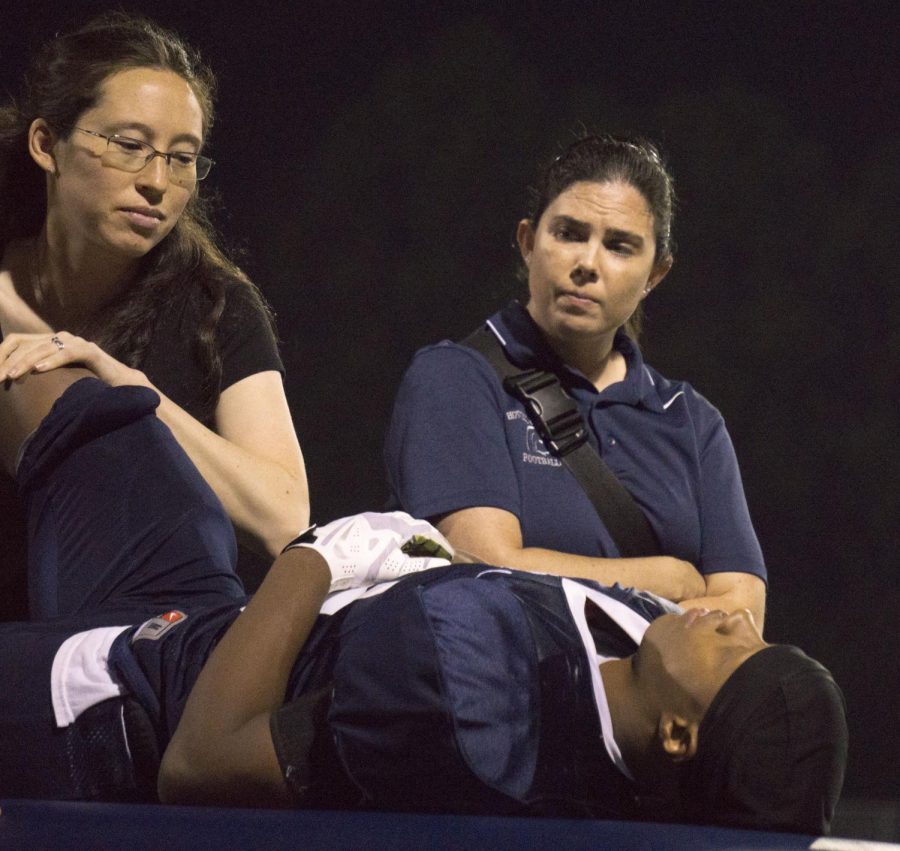Concussion
More stories from Doug West
Concussions have become a growing epidemic in the sports and media world recently. A concussion happens when the athlete suffers an impact to the head and the brain collides within the skull.
Symptoms of a concussion can include continuous headaches, sensitivity to light and sound, irritability, confusion, nausea, and over a period of time, depression. Chronic Traumatic Encephalopathy (CTE) is a disease closely linked with repeated blows to the head or concussions. Someone with CTE does not know they have the disease until an autopsy is done when they die, but a carrier of CTE may have early signs of memory loss, confusion, depression, and dementia. In a recent study, 111 former National Football League (NFL) players had their brains examined and 110 of them had the degenerative disease CTE, according to the New York Times.
While an athlete is performing and they think they have suffered a concussion or if they are symptomatic they’re athletic trainer will have them take an impact test. An impact test is a test that deals with asking questions about memory and reaction time.
Once the test is finished the athletes score and data is compared with the same athletes score prior to them having a concussion. This is known as the baseline score. If the athlete’s current score is lower than the baseline then they are diagnosed with a concussion.
For a concussion the athlete is unable to compete and in most cases they last up to one or two weeks, but prior to the athlete competing again when they feel better, they must again take the impact test to see if their score is greater than or equal to their baseline score. On the odd case that the athlete has failed their impact test again they will in most cases sit out from their sport more, but most likely be recommended to see a specialist.
Your donation will support the student journalists of Francis Howell Central High School. Your contribution will allow us to purchase equipment and cover our annual website hosting costs. FHCToday.com and our subsequent publications are dedicated to the students by the students. We hope you consider donating to allow us to continue our mission of a connected and well-informed student body.













